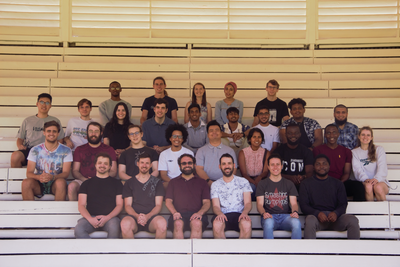Robotics, Autonomous Intelligence and Learning Lab
The RAIL Lab, established in 2014, is dedicated to conducting cutting-edge research in the field of artificially intelligent systems. With a focus on both fundamental and applied research, our vision is to serve as a prominent centre of excellence and a hub for AI activities in Africa. We aim to make significant contributions to the field of AI while also applying our findings to benefit society at large.

We are now hiring postdocs!
We are looking for postdocs in (1) learning, planning and reasoning; (2) reinforcement learning for embodied AI; (3) African AI governance; and (4) procedural content generation.
Latest Research
MoralityGym: A Benchmark for Evaluating Hierarchical Moral Alignment in Sequential Decision-Making Agents
Evaluating moral alignment in agents navigating conflicting, hierarchically structured human norms is a critical challenge at the …
Skill-Driven Neurosymbolic State Abstractions
We consider how to construct state abstractions compatible with a given set of abstract actions, to obtain a well-formed abstract …
Play-style Identification and Player Modelling for Generating Tailored Advice in Video Games
Learning new skills often leads to disengagement when individuals face obstacles arising from limited experience, poor instruction, or …
Real-time Prediction of Dota 2 Match Outcomes using In-game Chat Logs
This paper investigates the application of supervised learning for the purpose of match outcome prediction from Dota 2 in game chat …
An earth observation and explainable machine learning approach for determining the drivers of invasive species — a water hyacinth case study
Invasive species management is often constrained by limited resources and complicated by ecological and socio-economic variability …
Finding the FrameStack: Learning What to Remember for Non-Markovian Reinforcement Learning
Recent success in developing increasingly general purpose agents based on sequence models has led to increased focus on the problem of …